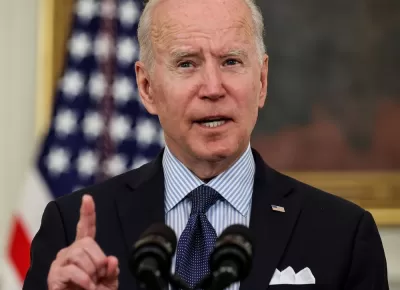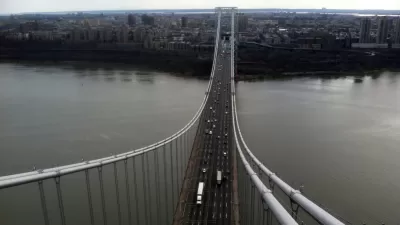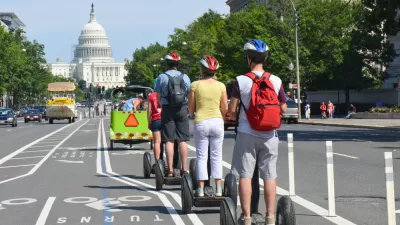The Biden administration announced late last week that they would reduce the spending proposed in the American Jobs Plan from $2.25 trillion to $1.7 trillion, although there is some question about the true significance of those changes.

"The Biden White House said on Friday that it was reducing the proposed price tag for its infrastructure plan from $2.25 trillion in 'additional investment' to $1.7 trillion in an attempt to win Republican support," report Ben Leonard, Christopher, and Natasha Korecki.
The Biden administration is presenting the countereffort as an effort to forge a bipartisan deal for the package of spending programs and reforms included in the American Jobs Plan, as proposed in March 2021.
The article includes some detail about the ground the Biden administration ceded with this negotiation ploy.
The fine print makes clear, however, that the concessions the administration was willing to make were not that dramatic as the top line numbers suggest. That’s because they proposed “shifting” spending on research and development, small business, supply chains and manufacturing into other proposals, including the Endless Frontier Act and the CHIPS Act, Psaki said.
According to the article, the changes are unlikely to satisfy Republicans, as details of the proposed cuts further elucidate:
The new Biden infrastructure proposal also would cut broadband spending to match the Republicans' latest offer, and cut investment in "roads, bridges and major projects" to get closer to the Republicans’ bottom line — a point one administration official involved in the talks called ironic given the GOP’s insistence that the package focus heavily on improving “core” infrastructure — but a concession nonetheless.
Earlier in the week, Republicans on the U.S. House of Representatives Transportation and Infrastructure Committee proposed a $400 billion package that would reauthorize the five-year federal surface transportation bill, according to an article by David Shepardson, in addition to serving as a counteroffer to the American Jobs Plan.
Additional new reporting on the Biden counteroffer is available from Jarret Renshaw and Jeff Mason for Reuters.
FULL STORY: White House cuts infrastructure proposal to $1.7 trillion in counter to GOP

Maui's Vacation Rental Debate Turns Ugly
Verbal attacks, misinformation campaigns and fistfights plague a high-stakes debate to convert thousands of vacation rentals into long-term housing.

Planetizen Federal Action Tracker
A weekly monitor of how Trump’s orders and actions are impacting planners and planning in America.

San Francisco Suspends Traffic Calming Amidst Record Deaths
Citing “a challenging fiscal landscape,” the city will cease the program on the heels of 42 traffic deaths, including 24 pedestrians.

Florida Home Insurers Disproportionately Dropping Low-Income Households
Non-renewal rates are highest in inland counties, not the coastal areas most immediately vulnerable to storms.

Half of Post-Fire Altadena Home Sales Were to Corporations
Large investors are quietly buying up dozens of properties in Altadena, California, where a devastating wildfire destroyed more than 6,000 homes in January.

Opinion: What San Francisco’s Proposed ‘Family Zoning’ Could Really Mean
Mayor Lurie is using ‘family zoning’ to encourage denser development and upzoning — but could the concept actually foster community and more human-scale public spaces?
Urban Design for Planners 1: Software Tools
This six-course series explores essential urban design concepts using open source software and equips planners with the tools they need to participate fully in the urban design process.
Planning for Universal Design
Learn the tools for implementing Universal Design in planning regulations.
Gallatin County Department of Planning & Community Development
Heyer Gruel & Associates PA
JM Goldson LLC
City of Camden Redevelopment Agency
City of Astoria
Transportation Research & Education Center (TREC) at Portland State University
Jefferson Parish Government
Camden Redevelopment Agency
City of Claremont





























